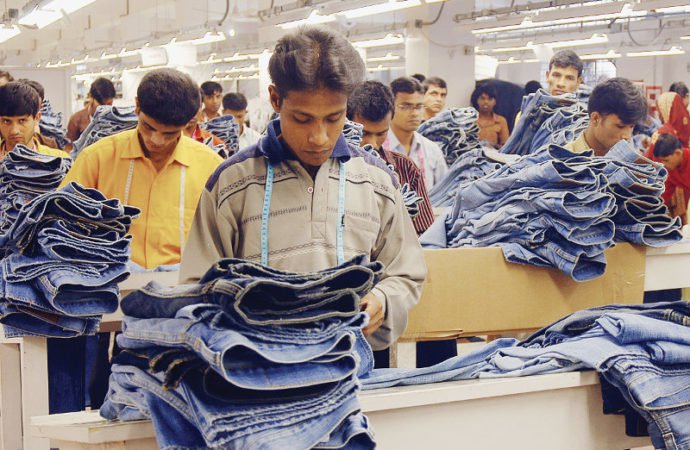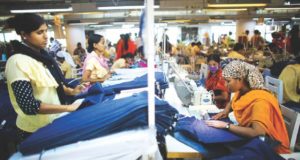Published in the Financial Express on July 7, 2017
Monira Munni
Export earnings from merchandise products maintained a sluggish growth in the just-concluded fiscal year (FY) 2016-17 with the receipts for the month of June registering a negative growth.
Exporters and officials identified the sluggish performance of the country’s ready-made garment sector as one of the key reasons for such export performance.
The country fetched $ 34.83 billion during the July-June period of the last fiscal, marking a 1.68 per cent growth, according to the provisional data.
The earnings fell short of target by 5.85 per cent set for the last fiscal. The Export Promotion Bureau (EPB) set $ 37-billion export target for the fiscal year 2016-17.
Export earnings were $ 34.25 billion in the FY 2015-16.
The single-month earnings in June ’17, however, witnessed a drastic fall by more than 15 per cent to $ 3.04 billion.
“Despite odds especially those of externals, the country maintained nearly 2.0 per cent growth in goods export earnings in the just-concluded fiscal year,” EPB vice-chairman Bijoy Bhattacharjee told the FE Thursday.
Quoting the provisional data, he said overall earnings from goods exports were nearly $ 35 billion which excluded the export performance of service sector.
The ministry data showed that earnings from RMG exports during the July-June period of the last fiscal grew by 0.20 per cent to $ 28.14 billion from $ 28.09 billion in the same period of FY 2015-16.
Earnings from woven garment stood at $ 14.39 billion with a 2.35 per cent negative growth during the period. Knitwear shipment grew by 3.01 per cent to $ 13.75 billion in the just-concluded fiscal year.
Terming the growth ‘unexpected’, Mahmud Hasan Khan, vice-president of Bangladesh Garment Manufacturers and Exporters Association (BGMEA) attributed both the external and internal factors to such sluggish performance.
The global consumption for apparel declined by 5.0 per cent while Brexit have a negative impact on local garment exports, he said, adding that currency fluctuation is another reason.
“Our currency against US dollar remained unchanged while the currencies in competitor countries devaluated,” he explained.
Moreover, due to the ongoing safety activities carried out by the western retailers’ platforms-Accord and Alliance-many factories were shut while a good number of units are in the process of relocation, he said.
Apart from those, prevailing gas and other infrastructural problems also affected the sector, he said expressing the hope that the growth might bounce back in the current fiscal year provided full function of relocated units and government’s policy supports.
Dr Khondaker Golam Moazzem, research director of Centre for Policy Dialogue (CPD), suggested that the commerce ministry should conduct a study to explore the products-wise demands that are increasing in the traditional markets.
Entrepreneurs also should increase their networking with the buyers so that they can increase their orders in the country and with those who are currently sourcing from other competitor countries, he added. He also pressed for the government’s incentives to help increase orders in non-traditional markets.
 CPD RMG Study Stitching a better future for Bangladesh
CPD RMG Study Stitching a better future for Bangladesh




